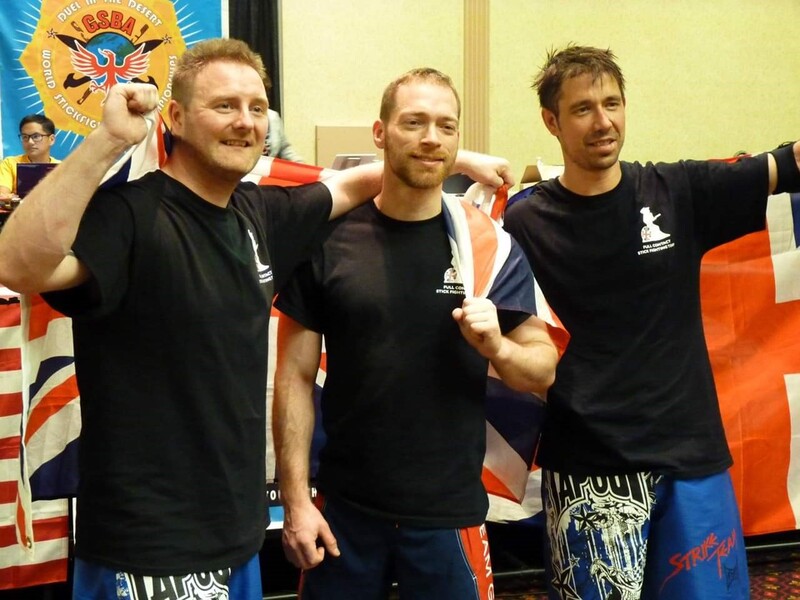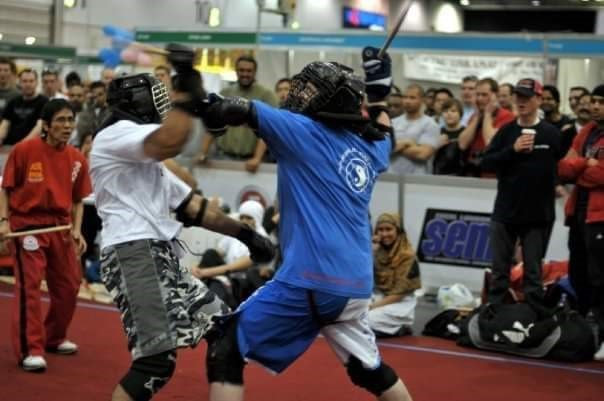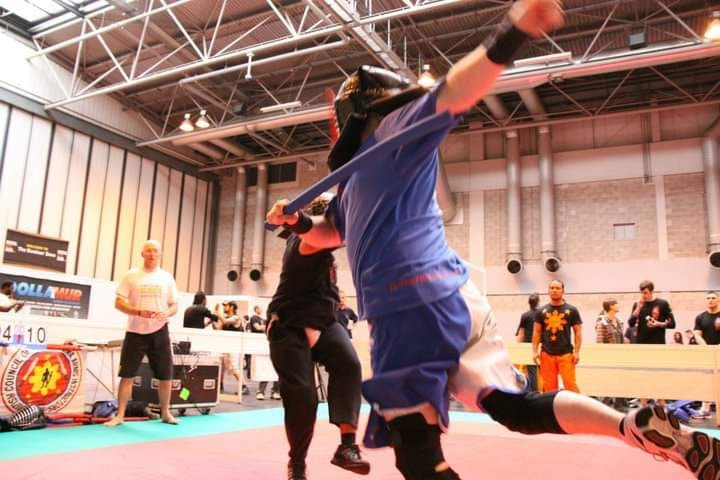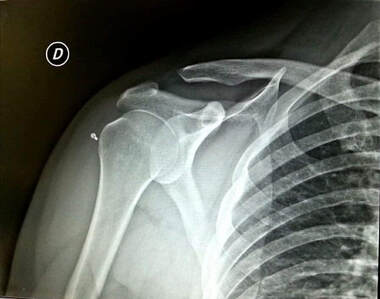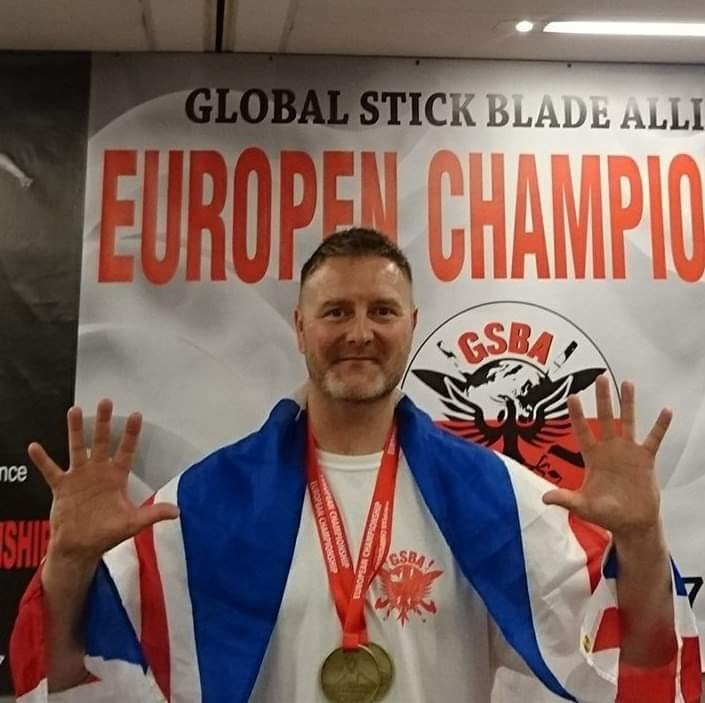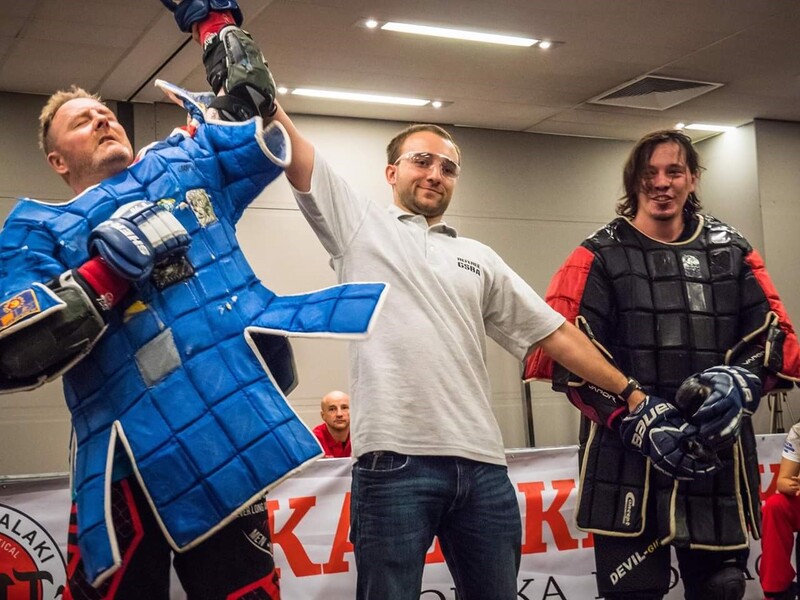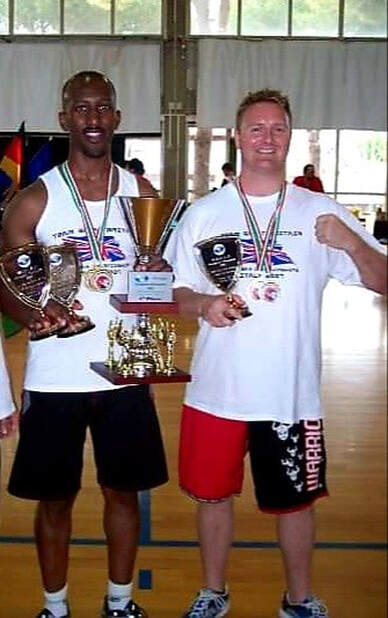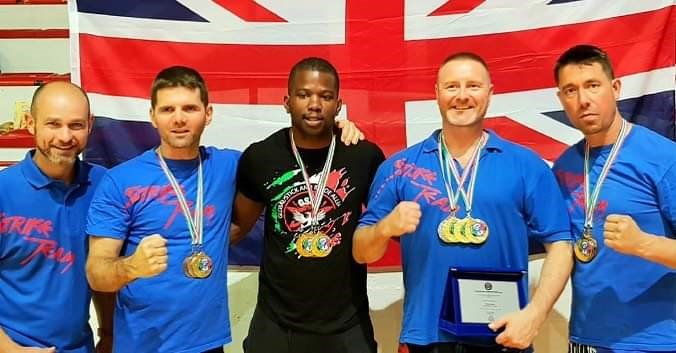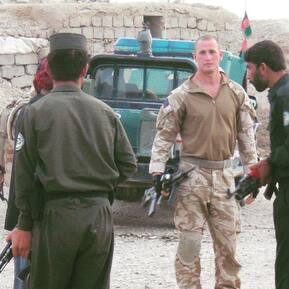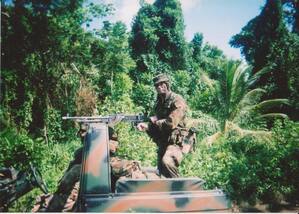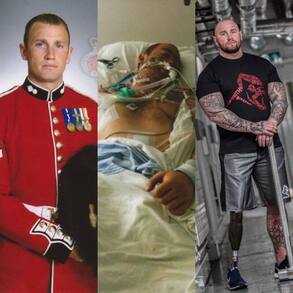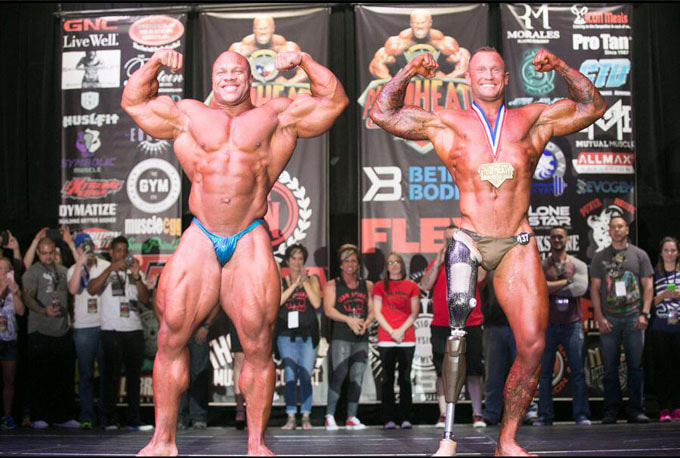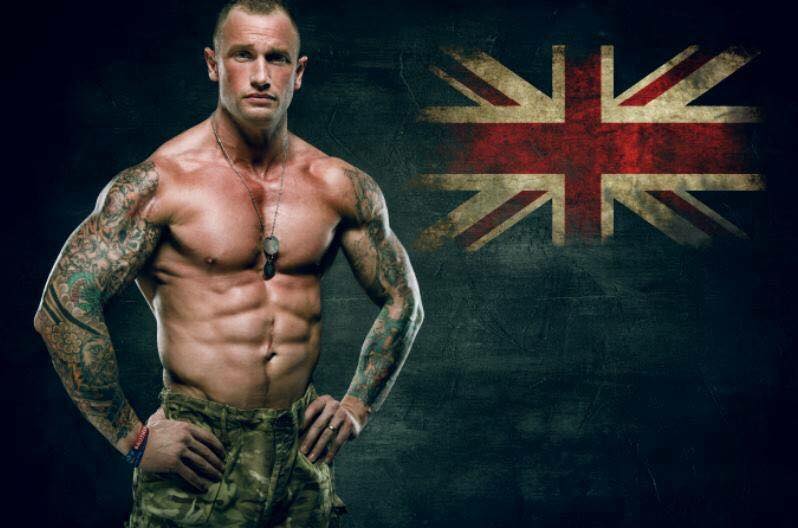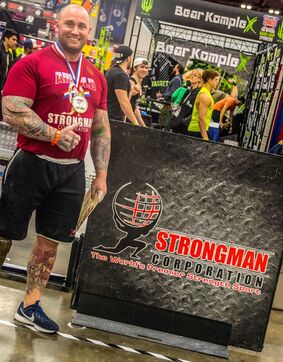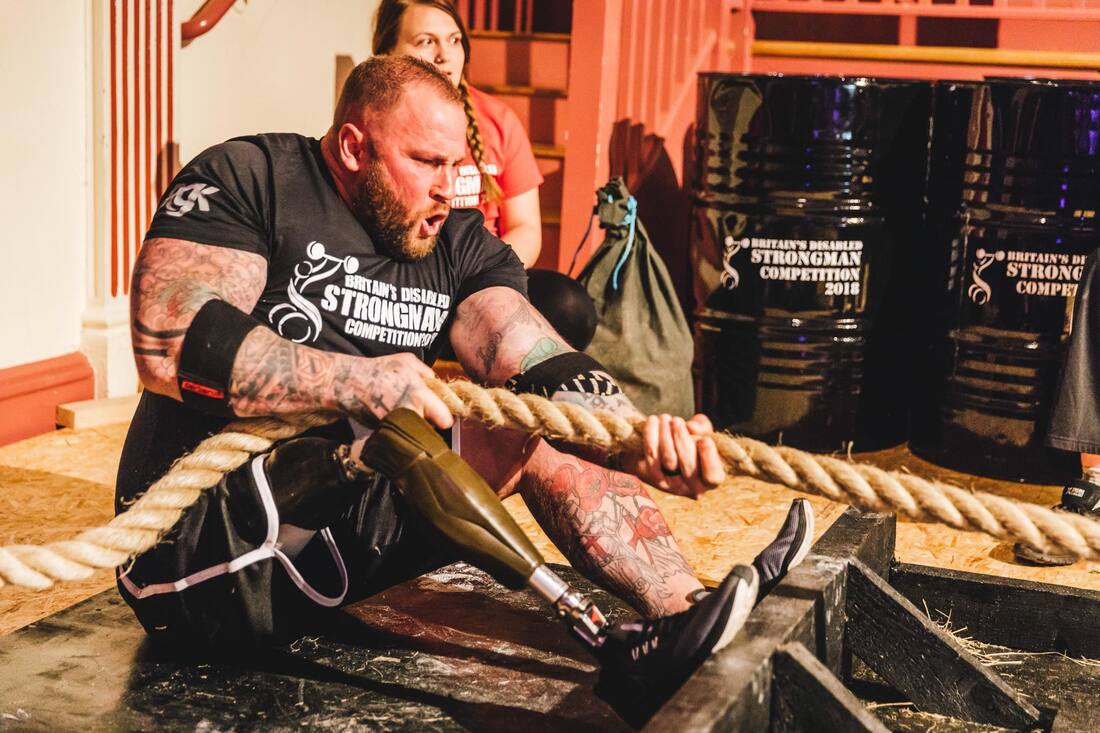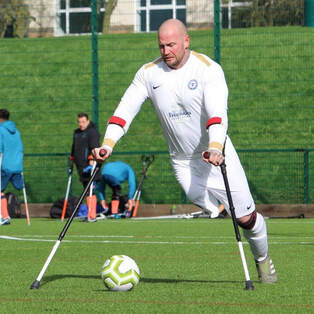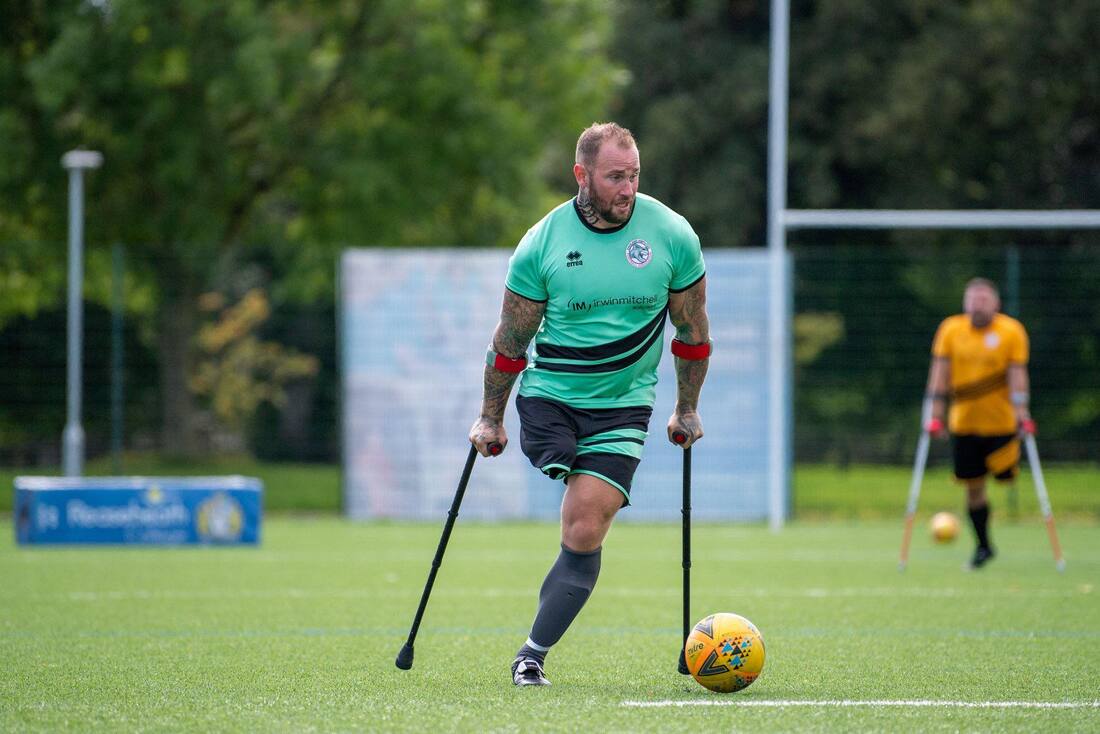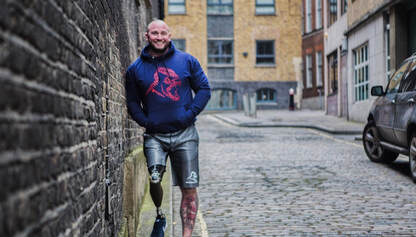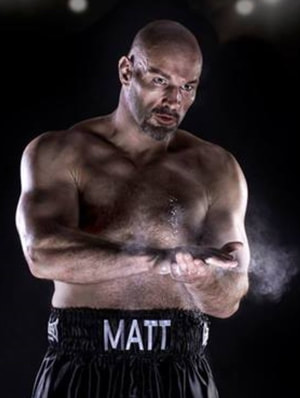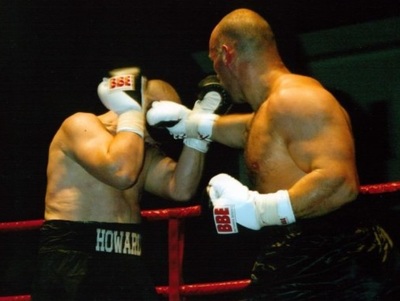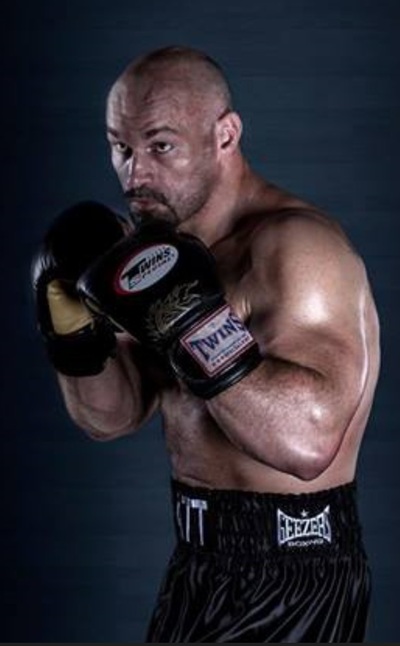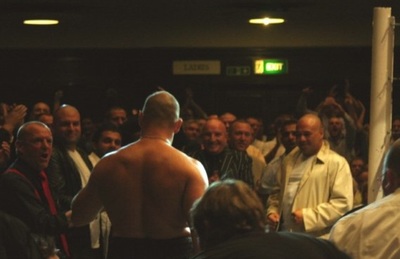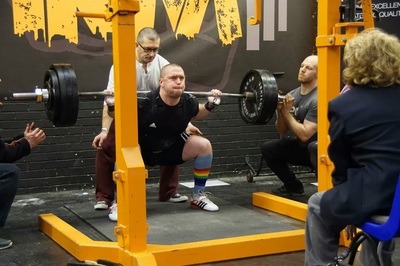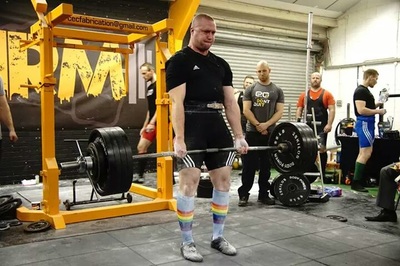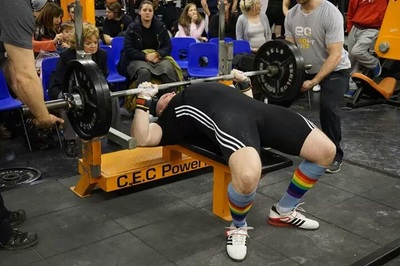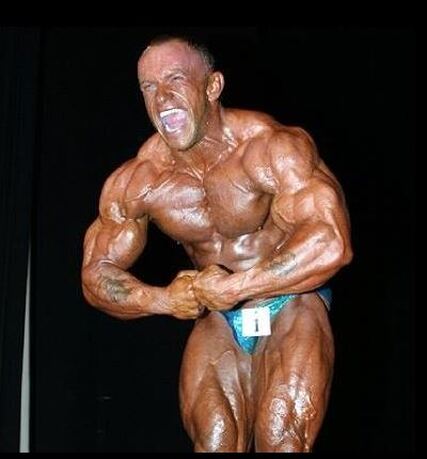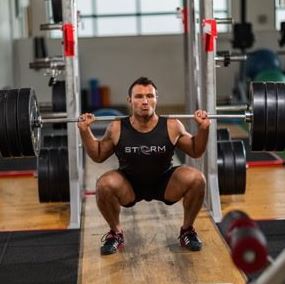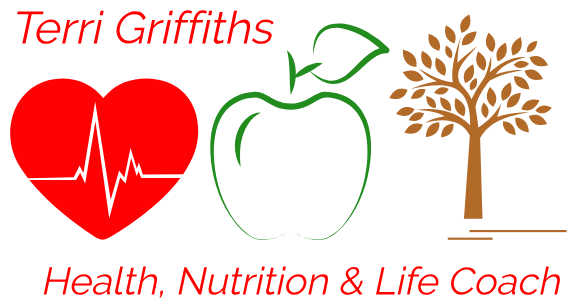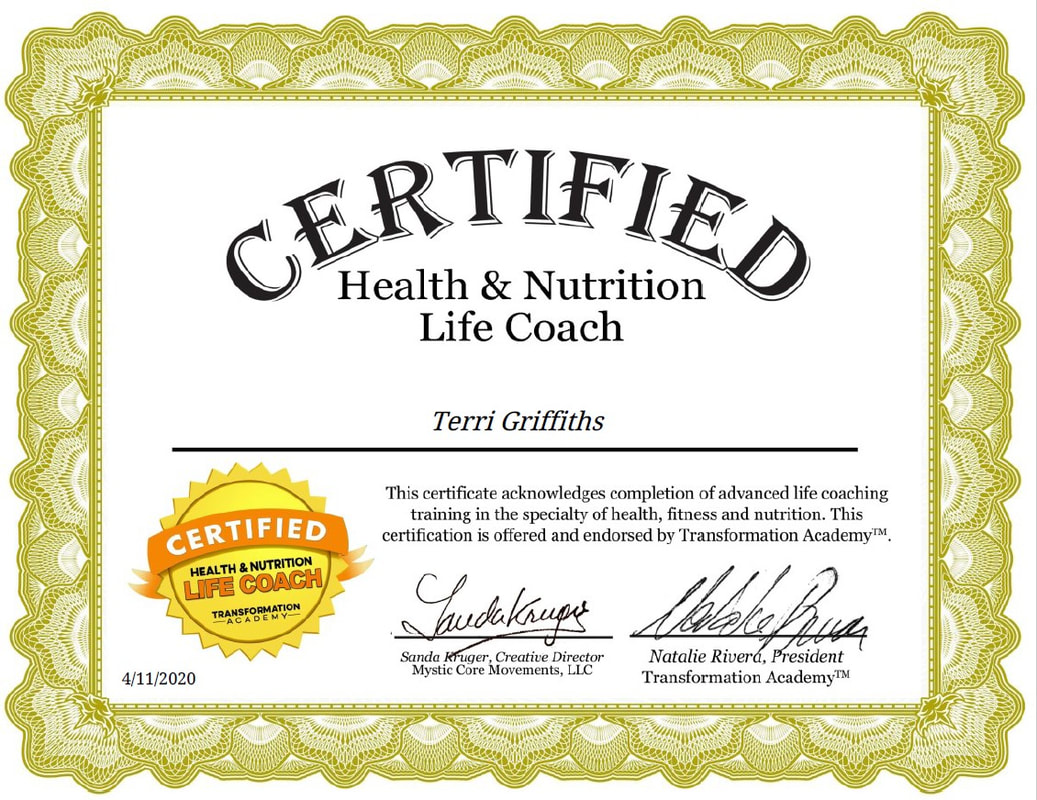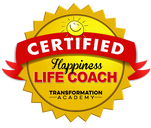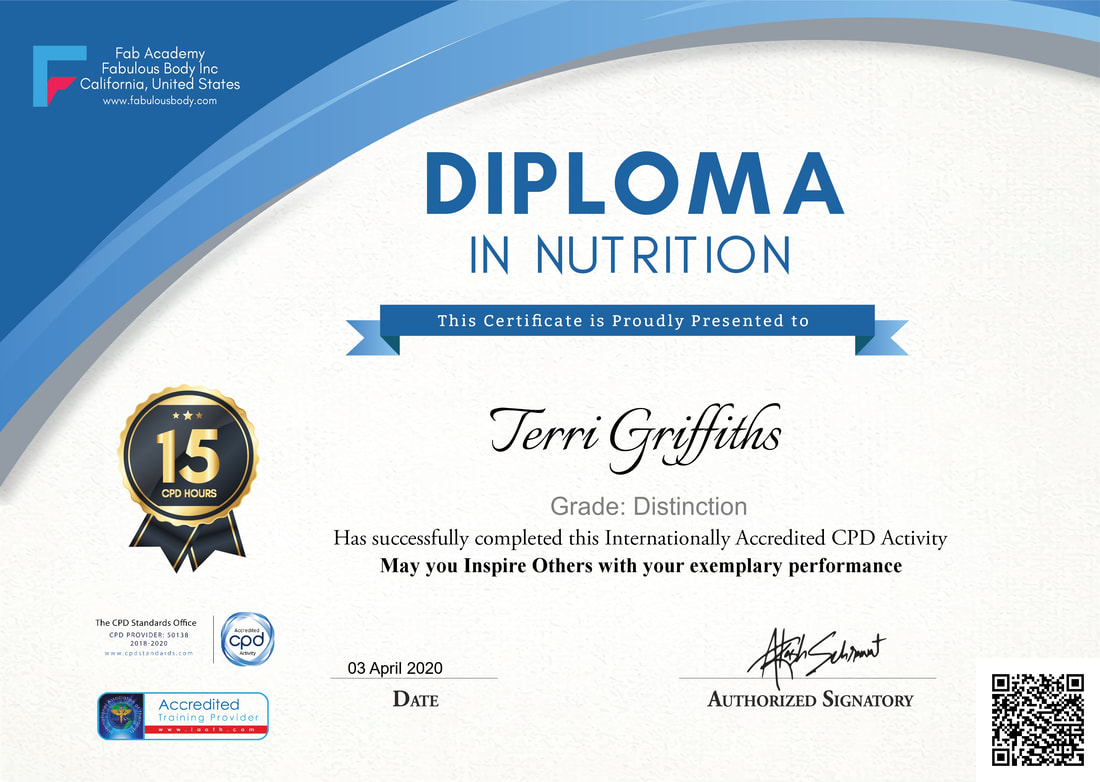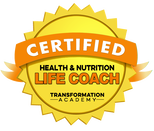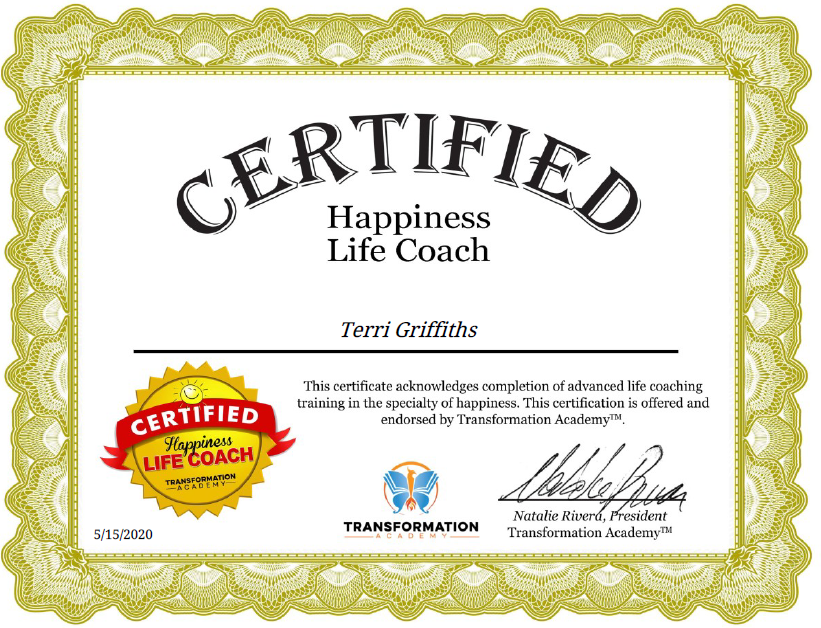26th April 2020 - Damien Mills stick fighting world champion
I have known Damien for many years as he was my instructor when I used to do JKD (Jeet Kune Do) and stick fighting some years ago. We have remained friends ever since. My impression has of Damien has always been that he is very caring, kind and thoughtful man, very genuine, very quick witted, a loyal friend, honest as well as hard as nails! And it's a magical combination to find in a man. Strength, Intelligence and a big heart makes a great human being to be around. I really enjoyed his story below, and he absolutely deserves a place on this page. So here is his story.....
Who are you and tell me a bit about yourself? - My name is Damien Mills and I am 42 (almost 43) years old, I am married to my beautiful wife Charlotte (definitely punching above my weight class there) and we have an incredible 7 year old Son. I have been training in a variety of Martial Arts for most of my life, it wasn't until I found JKD (Jeet Kune Do)-Kali just over 20 years ago that I settled on one art form that I absolutely fell in love with. Most people have heard of Jeet Kune Do or Bruce Lee, but not as many are aware of Kali. This is a Filipino Martial Art where one of the main components is weapon work, it is this aspect that lead me on an incredible journey competing in full contact Stickfighting. I am currently the Chief Instructor at JKD-Kali Northampton, Head Coach of the Strike Team (the contact sparring arm of the club), Co-Head Coach of the GSBA (Global Stick and Blade Alliance) British Stickfighting team and GSBA International Vice President.
Tell us a bit of background ? - I was born in Rugby an only child (no one else to blame my mistakes on) to my Mum and biological Father, my Mum left my Biological Father when I was about 7 as he had a substance abuse issue that made him a fairly awful human being, along with all the unpleasantness that came with his addiction. My Mum remarried and my Stepfather stayed with us until he passed away in 2010, we moved about a fair bit while I was young and by the time I was in college I had been to fifteen different schools, not really having time to fit in in most of them and I was certainly not particularly sporty.
What were your goals and ambitions as a child? - As a child I remember wanting to join the Police, the RAF or own fast cars (like most young boys), I managed to fulfil at least one of those ambitions, other than that my childhood seemed a little to frantic to remember. School was always difficult for me having dyslexic tendencies and not taking well to instruction lead me into a "special needs" educational program in my final senior school, that ultimately meant leaving school with just the one GCSE, something I went on to rectify later on in life with the diplomas and degree I needed for my careers.
What do you do for a living? - After spending a lot of time doing various jobs ranging from a cook, lifeguard, doorman, barman, labourer, silver service waiter, LSA, financial consultant, mortgage broker and owning my own mortgage advice company, I finally became the Head of Mathematics in an SEMH (Social Emotional and Mental Health) secondary school where I have been for the last ten years. It looks like I finally found a school where I fit in, just 30 years late.
Tell us about your sporting Achievements? - I am an instructor in JKD-Kali and had the privilege of training under Guro Roger Barnes. I had my first ever full contact Stickfighting competition in 2005 a novice event that my team mates and I all won our divisions in, at that point not realising I just begun a journey that I would be fortunate enough to take me all over the World, allow me to meet some of the best friends I have today and meet some of the most influential people in my life.
Who are you and tell me a bit about yourself? - My name is Damien Mills and I am 42 (almost 43) years old, I am married to my beautiful wife Charlotte (definitely punching above my weight class there) and we have an incredible 7 year old Son. I have been training in a variety of Martial Arts for most of my life, it wasn't until I found JKD (Jeet Kune Do)-Kali just over 20 years ago that I settled on one art form that I absolutely fell in love with. Most people have heard of Jeet Kune Do or Bruce Lee, but not as many are aware of Kali. This is a Filipino Martial Art where one of the main components is weapon work, it is this aspect that lead me on an incredible journey competing in full contact Stickfighting. I am currently the Chief Instructor at JKD-Kali Northampton, Head Coach of the Strike Team (the contact sparring arm of the club), Co-Head Coach of the GSBA (Global Stick and Blade Alliance) British Stickfighting team and GSBA International Vice President.
Tell us a bit of background ? - I was born in Rugby an only child (no one else to blame my mistakes on) to my Mum and biological Father, my Mum left my Biological Father when I was about 7 as he had a substance abuse issue that made him a fairly awful human being, along with all the unpleasantness that came with his addiction. My Mum remarried and my Stepfather stayed with us until he passed away in 2010, we moved about a fair bit while I was young and by the time I was in college I had been to fifteen different schools, not really having time to fit in in most of them and I was certainly not particularly sporty.
What were your goals and ambitions as a child? - As a child I remember wanting to join the Police, the RAF or own fast cars (like most young boys), I managed to fulfil at least one of those ambitions, other than that my childhood seemed a little to frantic to remember. School was always difficult for me having dyslexic tendencies and not taking well to instruction lead me into a "special needs" educational program in my final senior school, that ultimately meant leaving school with just the one GCSE, something I went on to rectify later on in life with the diplomas and degree I needed for my careers.
What do you do for a living? - After spending a lot of time doing various jobs ranging from a cook, lifeguard, doorman, barman, labourer, silver service waiter, LSA, financial consultant, mortgage broker and owning my own mortgage advice company, I finally became the Head of Mathematics in an SEMH (Social Emotional and Mental Health) secondary school where I have been for the last ten years. It looks like I finally found a school where I fit in, just 30 years late.
Tell us about your sporting Achievements? - I am an instructor in JKD-Kali and had the privilege of training under Guro Roger Barnes. I had my first ever full contact Stickfighting competition in 2005 a novice event that my team mates and I all won our divisions in, at that point not realising I just begun a journey that I would be fortunate enough to take me all over the World, allow me to meet some of the best friends I have today and meet some of the most influential people in my life.
I won my first British title in 2006 managing to retain my titles unbeaten in single stick for the next 14 years and I am still going. I won my first European Championships in Terracina in Italy in 2007 and remain to this day undefeated in single stick on the European circuit. I attended my first World championships in 2008 in the Philippines bringing home two silver medals and a bronze. Roll on the next World Championships, 2010 in Mexico where I secured my first of what will become (so far) nine World Titles at Heavyweight in a mixture of single stick, double stick, team event and low armour padded weapon events.
|
I entered my first padded stick event in 2008 and have always retained my British title at either single stick (I have only ever lost one single stick fight in the UK) or double stick for the last 12 years I have also won limited armour live stick events (not the sort of thing you can do often and retain a day job), many National and invitational padded stick events and open weapon competitions. Managing some of this after 3 reconstructive surgeries in my shoulder, wrist and hand and being told I would not be able to compete again more than once just proves what you are capable of if you really want it.
|
How often do you train? - I train in JKD-Kali 3 times a week with additional sparring only sessions once or twice a week, when we have competitions on the horizon our training schedule will increase. For international events I lead Team GB with the other Head Coach John James and our Assistant Coach Barry Heart (both Martial Artists of high renown in their own right), our training camps will go on for weekly squad sessions for 6 to 8 weeks in addition to our regular training.
Do you eat healthy with all the training you do? - I eat well, as I am not a full time athlete I am able to enjoy a regular diet when I am not in competition prep to make weight, I do however make almost all of my own food as I like to know what is in my food. So from that aspect it is healthy eating, as I can control what goes into my meals also I enjoy cooking so that helps. For competition time, I have to monitor what I take in more closely as making and maintaining fight weight takes a lot of work with the increased training.
What is the proudest moment/s of your life? - The proudest moments of my home life were the birth of my Son and getting married, but my proudest sporting achievement came in Poland in 2017 when I made it to ten years undefeated on the European circuit, the decade was a big marker for me and I think I placed more pressure on myself because of that, making the time post the final fight quite an emotional moment for me.
Do you eat healthy with all the training you do? - I eat well, as I am not a full time athlete I am able to enjoy a regular diet when I am not in competition prep to make weight, I do however make almost all of my own food as I like to know what is in my food. So from that aspect it is healthy eating, as I can control what goes into my meals also I enjoy cooking so that helps. For competition time, I have to monitor what I take in more closely as making and maintaining fight weight takes a lot of work with the increased training.
What is the proudest moment/s of your life? - The proudest moments of my home life were the birth of my Son and getting married, but my proudest sporting achievement came in Poland in 2017 when I made it to ten years undefeated on the European circuit, the decade was a big marker for me and I think I placed more pressure on myself because of that, making the time post the final fight quite an emotional moment for me.
Who or what inspired you over the years? - The person who has had the biggest impact on my life was my JKD-Kali Instructor and friend Guro Roger Barnes. What he taught me and showed me opened my eyes to a World of possibility and adventure, I had trained in many Martial Arts prior to meeting Roger, as soon as I started to train in JKD-Kali I realised I was "home" that was almost 20 years ago now.
|
Tragically Roger passed away while we were at the British Championships in 2009 at the age of 39 from an unforeseen clot that stopped his heart, nothing to do with him competing but an underlying health condition of which he was not aware.
The effect this had on me was profound, I was due to open a class in a different town just weeks away, but our club was left without an instructor and after discussing it with the other students it was decided I should take over the running of JKD-Kali Northampton instead. In order to do this I had to discuss with my wife that I would need to stop being a Mortgage Broker as I would not have enough time to teach the classes, so I folded my business and ended up starting off (at the school I now work at) as a learning support assistant while I completed a teaching degree, ran 5 classes a week in Northampton and MK and was doing Brokering in the evening for a friends company to make sure I could keep paying my bills, working 3 jobs and doing a degree, 2 years passed quickly. I realised that it was more important for me to continue with teaching JKD-Kali and find a career that gave me a chance to do something more worthwhile both at work and in my own time. |
What are your current goals and ambitions in the future? - The future for me will certainly see me still fighting and growing the sport so that others can enjoy it, it has been growing in popularity and the GSBA is now the biggest Stickfighting organisation in the World, I am proud that I was able to be part of setting it up in 2011. My son is showing an interest and has competed for the first time at this years British Championship, last year held our first annual Roger Bares invitational raising money for BLESMA and I look forward to seeing that progress every year.
Do you think it's important to have a goal in life to work for? - I think that goals are important, they provide you with focus and purpose and something to look forward to. My students and I often speak about the benefits of Martial Arts, be they physical, in, fitness, health, learning, developing and honing new skills, or psychological, in keeping your mental health in check, keeping your mind active and remaining inquisitive. This is true of any passion, training or hobby that will benefit you, I am convinced it is vitally important to remain physically and mentally active. Especially as you get older, training of any kind I think becomes even more important, for your well-being and those around you. So if you haven't already, get out there and find something that captures you and keeps your spark alive.
Do you think it's important to have a goal in life to work for? - I think that goals are important, they provide you with focus and purpose and something to look forward to. My students and I often speak about the benefits of Martial Arts, be they physical, in, fitness, health, learning, developing and honing new skills, or psychological, in keeping your mental health in check, keeping your mind active and remaining inquisitive. This is true of any passion, training or hobby that will benefit you, I am convinced it is vitally important to remain physically and mentally active. Especially as you get older, training of any kind I think becomes even more important, for your well-being and those around you. So if you haven't already, get out there and find something that captures you and keeps your spark alive.
Is there anything else you would like to add? - I would like to finish by telling you that I was recently asked by and Educational Psychologist what I do to relax or unwind from the stress that my work can bring, do I meditate, do I drink(?), do I run, do I play football, do I eat junk and veg' on the sofa? When I told her that I fight to relax, she was genuinely taken aback and a little shocked, and to my surprise, not understanding. It's simple, when I am sparring Nothing else exists, I exist solely in those pure moments I am in the ring, there is nothing else. It is a singularly focused activity and nothing has an effect in those moments other that what I do. No work, no worries, no conversations, no past, no future, no problems, no "noise". In those moments during those acts of "violence", I am at totally at peace. I hope you all have or can find something that brings you peace.
Thank you so much Damien for sharing your story. You are an inspiration to me, and will always be someone I look up to. And I'm very fortunate to have had you as my instructor, and even more so as a friend.
20th april 2020 - Mark smith amputee footballer
I contacted Mark to ask if he would consider answering a few questions I have with the intention of him being featured on Inspirational Stories and People page, and as a gym buddy of mine, he happily accepted. And after reading through Marks answers he sent last night, I'm so glad he agreed. He so deserves a place on this page, and his words and honesty really moved me while I read them. What a life, what a story, what a man. Respect to you Mark, and may all your successes continue. Here's his story....
Who are you and tell us a little bit about yourself? I’m 35, from Milton Keynes, Amputee Footballer for Peterborough United. A little bit of background. Where did you grow up, and do you have brothers/sisters? Grew up in Milton Keynes.
What was your goals ambitions as a child? From around 13 years old, I knew I wanted to be an Infantry Soldier. Tell us a little about your time in the Army? Joined the 1st Battalion Grenadier Guards in 2003 at 18 years old. Served on Operational tours of Bosnia, Iraq and Afghanistan, as well as working overseas in Jamaica, the Falkland Islands, Kenya and Canada. In England, our role was also to carry out ceremonial duties, including trooping the colour, guarding the Crown Jewels at the Tower of London and guarding Buckingham Palace, St James’ Palace and Windsor Castle. Reached the rank of LSgt and served for 10 years, before being medically discharged in late 2013.
Tell us how you came to lose your leg? During a live firing range on the Prairie in Canada, I was shot several times with a light machine gun through a compound wall in a training accident.
Who are you and tell us a little bit about yourself? I’m 35, from Milton Keynes, Amputee Footballer for Peterborough United. A little bit of background. Where did you grow up, and do you have brothers/sisters? Grew up in Milton Keynes.
What was your goals ambitions as a child? From around 13 years old, I knew I wanted to be an Infantry Soldier. Tell us a little about your time in the Army? Joined the 1st Battalion Grenadier Guards in 2003 at 18 years old. Served on Operational tours of Bosnia, Iraq and Afghanistan, as well as working overseas in Jamaica, the Falkland Islands, Kenya and Canada. In England, our role was also to carry out ceremonial duties, including trooping the colour, guarding the Crown Jewels at the Tower of London and guarding Buckingham Palace, St James’ Palace and Windsor Castle. Reached the rank of LSgt and served for 10 years, before being medically discharged in late 2013.
Tell us how you came to lose your leg? During a live firing range on the Prairie in Canada, I was shot several times with a light machine gun through a compound wall in a training accident.
What do you currently do for a living? Since being medically discharged from the Army, I have been fortunate to be well looked after and am on my pension for my injuries, I have in that time, become a qualified Personal Trainer and Football Coach, but have used my time to commit fully to sport and currently play amputee football for Peterborough United.
Tell us about your body building experiences Bodybuilding was a challenge, an opportunity to step up on stage with a prosthetic leg and be critiqued. To help me grow in confidence with my appearance and to show that despite losing a leg, I could still push my body and it was a way of showing how far I’d come from how Ill and underweight I became in Hospital. I was very fortunate to win several Disability Classes in Bodybuilding and my highlight would without doubt be sharing a stage with Phil Heath on stage in Houston, Texas. That was a real turning point for me and a surreal time, as I arrived back home to be contacted by and featured in Muscle & Fitness, Flex Magazine, Train and Muscular Development.
Tell us about your body building experiences Bodybuilding was a challenge, an opportunity to step up on stage with a prosthetic leg and be critiqued. To help me grow in confidence with my appearance and to show that despite losing a leg, I could still push my body and it was a way of showing how far I’d come from how Ill and underweight I became in Hospital. I was very fortunate to win several Disability Classes in Bodybuilding and my highlight would without doubt be sharing a stage with Phil Heath on stage in Houston, Texas. That was a real turning point for me and a surreal time, as I arrived back home to be contacted by and featured in Muscle & Fitness, Flex Magazine, Train and Muscular Development.
Tell us about your strongman experiences - Strongman is something I grew up watching every Christmas as a Boy and something I saw as superhuman, something I never thought I’d be capable of, especially missing a leg, but it provided a good challenge and a natural progression on from Bodybuilding. I went on to win Britain’s Strongest Disabled Man in 2016 and 2017, as well as winning the Arnold Classic in Columbus, Ohio in 2017 and 2018 and England’s Strongest Disabled Man in 2018.
Tell us about your football experiences Football was always my first love, I played religiously growing up and right up until I lost my leg, I think I always knew I’d be involved in football again in some capacity. Coming from a military background, I enjoyed the camaraderie that comes with being a part of something and I enjoyed being around people, Bodybuilding and Strongman, as enjoyable as they were in their own right, were quite lonely sports and I missed that atmosphere in a changing room and the togetherness on a football pitch.
I have played for two seasons now for Peterborough United in the Amputee Football League and it has been a revelation in my personal life, getting me socialising again, whilst also coming with some success, winning the national league title in my first season, defeating Manchester City 4-2 in the Play Off Final.
I was also voted the Player of the year for last season, which meant an enormous amount given that the votes were from those I played alongside.
I have played for two seasons now for Peterborough United in the Amputee Football League and it has been a revelation in my personal life, getting me socialising again, whilst also coming with some success, winning the national league title in my first season, defeating Manchester City 4-2 in the Play Off Final.
I was also voted the Player of the year for last season, which meant an enormous amount given that the votes were from those I played alongside.
How often do you train? I train Monday to Friday, with a weights session in the morning in the Gym, followed by swimming or cardio, as well as football training three times a week in the evenings.
Do you eat a healthy diet with all the training you do? I eat clean six days a week, with a Saturday being a cheat day. With football being less about my physique and more about my level of match fitness, I have found that my discipline from bodybuilding dieting has really helped me on the pitch.
What is the proudest moment/s of your life? Away from sport, without doubt, having two healthy Sons, but there are many things I have been proud of, not necessarily at the time, as I’m always looking on to the next thing, but on reflection now, I’m proud to have served in such a prestigious regiment, I’m proud to have stood side by side on stage with a multiple Mr Olympia, I’m proud that there was a time when I could call myself the Strongest Disabled Man in Great Britain and I’m proud that I’ve settled in well to football.
What/who inspired and motivated you over the years? I have found inspiration in each path and I’ve been someone that’s always looked to role models, but to narrow it down, I’d say Arnold Schwarzenegger, Mike Tyson and Paul Gascoigne in their respective sports, their backgrounds, commitment and entertainment they have given over the years.
Were you always strong character and a go getter, or did dealing with trauma make you even stronger? It’s an awkward thing to write, but I would say that my resilience and determination stems back from an unhappier time during my secondary school years. Those experiences made me determined to never be seen as weak and an easy target again.
What are your current goals and ambitions for the future? To be honest, what I have done since losing my leg has far exceeded anything I could have dreamt of, so with football now, it’s just about enjoying the chance to still play. I perhaps didn’t fully savour those highs in Bodybuilding and Strongman, as there was another competition and another trophy to fight for, now, I just want to enjoy the moment with a smile on my face.
Do you think its important in life to have a goal to work for? It’s definitely a fuel for the fire in regards to sticking to a diet or a training programme if there is a goal to be reached and a deadline to reach it by. It gives you a purpose and a reason to get out of bed in the morning, those few months after leaving the Army and just being a personal trainer, I didn’t necessarily have a goal to drive me and my motivation was lacking, to keep learning and improving and having memories to look back on, makes each bland meal, each cardio session, each repetition, all worth it.
Anything else you would like to add? I hope that whether people who read this are disabled or lacking motivation or just generally in need of finding a purpose, I hope that reading my outlook on being determined to achieve and be a good role model for my children despite missing a leg, I hope it can show that if a one legged person can do all this, then anybody can achieve anything with the right mindset.
Do you eat a healthy diet with all the training you do? I eat clean six days a week, with a Saturday being a cheat day. With football being less about my physique and more about my level of match fitness, I have found that my discipline from bodybuilding dieting has really helped me on the pitch.
What is the proudest moment/s of your life? Away from sport, without doubt, having two healthy Sons, but there are many things I have been proud of, not necessarily at the time, as I’m always looking on to the next thing, but on reflection now, I’m proud to have served in such a prestigious regiment, I’m proud to have stood side by side on stage with a multiple Mr Olympia, I’m proud that there was a time when I could call myself the Strongest Disabled Man in Great Britain and I’m proud that I’ve settled in well to football.
What/who inspired and motivated you over the years? I have found inspiration in each path and I’ve been someone that’s always looked to role models, but to narrow it down, I’d say Arnold Schwarzenegger, Mike Tyson and Paul Gascoigne in their respective sports, their backgrounds, commitment and entertainment they have given over the years.
Were you always strong character and a go getter, or did dealing with trauma make you even stronger? It’s an awkward thing to write, but I would say that my resilience and determination stems back from an unhappier time during my secondary school years. Those experiences made me determined to never be seen as weak and an easy target again.
What are your current goals and ambitions for the future? To be honest, what I have done since losing my leg has far exceeded anything I could have dreamt of, so with football now, it’s just about enjoying the chance to still play. I perhaps didn’t fully savour those highs in Bodybuilding and Strongman, as there was another competition and another trophy to fight for, now, I just want to enjoy the moment with a smile on my face.
Do you think its important in life to have a goal to work for? It’s definitely a fuel for the fire in regards to sticking to a diet or a training programme if there is a goal to be reached and a deadline to reach it by. It gives you a purpose and a reason to get out of bed in the morning, those few months after leaving the Army and just being a personal trainer, I didn’t necessarily have a goal to drive me and my motivation was lacking, to keep learning and improving and having memories to look back on, makes each bland meal, each cardio session, each repetition, all worth it.
Anything else you would like to add? I hope that whether people who read this are disabled or lacking motivation or just generally in need of finding a purpose, I hope that reading my outlook on being determined to achieve and be a good role model for my children despite missing a leg, I hope it can show that if a one legged person can do all this, then anybody can achieve anything with the right mindset.
Thank you Mark for sharing your story with my readers. You truly are an inspiration to me and an amazing individual. I will look forward to continuing to follow your successes and achievements as I have no doubt there will be more.
Mark Smith...we salute you.
Mark Smith...we salute you.
22nd August 2015 - Matt Legg - BoxerThis is Matts story. An long time friend of mine and local celebrity. I asked if he would tell his story and give us some points on training and diet, and he did with pleasure. This is Matt Legg -
I am 39 years old and I live in Milton Keynes. I have a Partner of 3 years and 3 children. All boys aged 14, 10 and 6. I was a professional Boxer at Heavyweight from 2001-2014. I am 6ft 2in tall, and my Off Season weight 17-18 stone, and Competition weight 16-17 stone. |
As an Amateur Boxer I had a record of 13-2. My only losses were narrow points losses, which came in ABA Finals against Matthew Grainger who was at the time No.1 .
I was a Professional Boxer at Heavyweight. My amateur achievements and Titles were :
Home Counties Super Heavyweight Novice Champion 2001
England Super Heavyweight Novice Champion 2001
Home Counties ABA Super Heavyweight Champion 2001
England ABA Super Heavyweight Finalist 2001
As a professional I was 7-3-0 I fought between 2001-2014. Two of my losses were to Future Heavyweight Champion Anthony Joshua and another loss came against Legendary fighter James Toney, who was a 5 weight World Champion and had beaten many great fighters including a knock-out victory over Evander Holyfield.
I was a Professional Boxer at Heavyweight. My amateur achievements and Titles were :
Home Counties Super Heavyweight Novice Champion 2001
England Super Heavyweight Novice Champion 2001
Home Counties ABA Super Heavyweight Champion 2001
England ABA Super Heavyweight Finalist 2001
As a professional I was 7-3-0 I fought between 2001-2014. Two of my losses were to Future Heavyweight Champion Anthony Joshua and another loss came against Legendary fighter James Toney, who was a 5 weight World Champion and had beaten many great fighters including a knock-out victory over Evander Holyfield.
I was inspired to take up Boxing in 1994 . I was 18 years old at the time and I was a keen weight trainer/body builder. At 18 years old I was 18.5 stone and very strong for a young kid. I was also a bit wild and would get in to various scrapes and such. And one month I ended up fighting with a group of doormen and a group of police,actually on two separate occasions. I ended up on remand in Woodhill prison, where I bumped in to my friend and local legend Norman Buckland.
Norman gave me some great advice and started me on my way in to the World of Boxing. He told me that rather than fighting on the streets and getting in trouble, that I should direct my energy towards Boxing. We tried to get gloves and boxing equipment in to the prison, but we were weren't allowed, so we would wrap a pair of socks around around our knuckles and fight/spar with each other in the shower area , away from the gaze of the prison staff.
Once I left Woodhill I then joined an Amateur Boxing Gym. So from the beginning... I have been involved in Boxing for 20 years now.
Apart from Norman, my inspiration in Boxing was always Mike Tyson. His speed, power elusiveness and aggression, made him the most exciting fighter I have ever seen.
In terms of preparation for fights, it varies with each fight. Sometimes I get 3 months to prepare, sometimes I only get 2 weeks. That is why it is so import to stay in good shape at all times.
I normally eat high protein, high carbs all the year around. I eat a lot of chicken breast, eggs, salmon, whey protein shakes, nuts, seeds, and also lots of vegetables, and fruit, potatoes, pasta.
My typical training would normally be on Mon, Tue, Thur and Fri, I would do a run first thing in the morning. This would be either a long stamina run, between 3- 6 miles, or if I was nearer a fight it could be hill sprints, sprints, or running up and down stairs. I would then rest until around 10 am or 11 am and then do a boxing session, involving shadow boxing, bag work, sparring and skipping . Usually around 4 or 5 rounds of each , so totalling around 20 rounds of boxing daily. I would then rest until the afternoon and start my strength training. With my strength training I would do Deadlifts, squats, Bench Press, Dumbbell Press seated, Bent over rows ,Dips, Chins and I also do a lot of sledgehammer work with a tyre. And medicine ball throws for punch power.
In my spare time I like to go to the cinema as often as I can. I also study Cryptozoology, which is the search for animals that are yet to be discovered by science, but are believed to exist from sightings and other evidence. I also like astronomy, and I read as often as possible. I read a lot of Biographies.
My favourite foods are steak, salmon, avocado, but if I'm due a treat meal, it would be a takeaway, either Indian or Chinese food. I love Ice Cream also, Ben and Jerry's mainly!
My favourite training session nowadays would be any day that I am running, or doing weights. I'm not boxing anymore these days, so im training for just power. So I love Standing Presses, Bench Press, Deadlifts, Chins with weights, Dips, Squats. And I still love running. To be honest without training I can start to suffer from depression, so training is a key part of my physical and mental well being. I always recommend exercise to anybody suffering from depression.
I've been retired from Boxing for a year now, but I still run and weight train. I'm moving towards Strongman training now, as I've always had a love for heavy weights. I set myself targets constantly and compete against myself.
Thank you for your time and good luck with your training.
Matt Legg
And thank you Matt for taking the time to do this article for my website, and for you open and honest answers. ooking forward to seeing you on the strongman circuit. You could have a training session with our Mike Warner below! Take care hun and catch you again soon!
Norman gave me some great advice and started me on my way in to the World of Boxing. He told me that rather than fighting on the streets and getting in trouble, that I should direct my energy towards Boxing. We tried to get gloves and boxing equipment in to the prison, but we were weren't allowed, so we would wrap a pair of socks around around our knuckles and fight/spar with each other in the shower area , away from the gaze of the prison staff.
Once I left Woodhill I then joined an Amateur Boxing Gym. So from the beginning... I have been involved in Boxing for 20 years now.
Apart from Norman, my inspiration in Boxing was always Mike Tyson. His speed, power elusiveness and aggression, made him the most exciting fighter I have ever seen.
In terms of preparation for fights, it varies with each fight. Sometimes I get 3 months to prepare, sometimes I only get 2 weeks. That is why it is so import to stay in good shape at all times.
I normally eat high protein, high carbs all the year around. I eat a lot of chicken breast, eggs, salmon, whey protein shakes, nuts, seeds, and also lots of vegetables, and fruit, potatoes, pasta.
My typical training would normally be on Mon, Tue, Thur and Fri, I would do a run first thing in the morning. This would be either a long stamina run, between 3- 6 miles, or if I was nearer a fight it could be hill sprints, sprints, or running up and down stairs. I would then rest until around 10 am or 11 am and then do a boxing session, involving shadow boxing, bag work, sparring and skipping . Usually around 4 or 5 rounds of each , so totalling around 20 rounds of boxing daily. I would then rest until the afternoon and start my strength training. With my strength training I would do Deadlifts, squats, Bench Press, Dumbbell Press seated, Bent over rows ,Dips, Chins and I also do a lot of sledgehammer work with a tyre. And medicine ball throws for punch power.
In my spare time I like to go to the cinema as often as I can. I also study Cryptozoology, which is the search for animals that are yet to be discovered by science, but are believed to exist from sightings and other evidence. I also like astronomy, and I read as often as possible. I read a lot of Biographies.
My favourite foods are steak, salmon, avocado, but if I'm due a treat meal, it would be a takeaway, either Indian or Chinese food. I love Ice Cream also, Ben and Jerry's mainly!
My favourite training session nowadays would be any day that I am running, or doing weights. I'm not boxing anymore these days, so im training for just power. So I love Standing Presses, Bench Press, Deadlifts, Chins with weights, Dips, Squats. And I still love running. To be honest without training I can start to suffer from depression, so training is a key part of my physical and mental well being. I always recommend exercise to anybody suffering from depression.
I've been retired from Boxing for a year now, but I still run and weight train. I'm moving towards Strongman training now, as I've always had a love for heavy weights. I set myself targets constantly and compete against myself.
Thank you for your time and good luck with your training.
Matt Legg
And thank you Matt for taking the time to do this article for my website, and for you open and honest answers. ooking forward to seeing you on the strongman circuit. You could have a training session with our Mike Warner below! Take care hun and catch you again soon!
8th August 2015 - Mike Warner - Powerlifter
Mike Warner lives in Milton Keynes, is 30 years of age, married and is in full time employment as a Teacher. He is a family man, and loves his family and friends and loves spending time with them. He's a casual guy and says he prefers wearing shorts and flip flops than trousers and shoes. And ENJOYS EATING! And his favourite food anything really meaty. And is also a Powerlifter.
He trains at my gym Atlas, and he trains HARD. So strict and consistent, which is good to watch and get some technique tips.
I asked him a few questions about his training and sport. This is his interview -
He trains at my gym Atlas, and he trains HARD. So strict and consistent, which is good to watch and get some technique tips.
I asked him a few questions about his training and sport. This is his interview -
What weight category are you in and what titles do you hold? - Off season I weight around 113 kg, and my Powerlifting competition weight is 109 kg.
And my titles so far are -
2013 BDFPA East Midlands Divisional 2nd Place Under 110kg Class
2014 BDFPA Eastern Counties Divisional 3rd Place Under 110kg Class
2014 BDFPA West Midlands Divisional 2nd Place Under 110kg Class
2015 BDFPA East Midlands Divisional 1st Place Under 110kg Class
2015 BDFPA British Championships 8th Place Under 110kg Class
What inspired you to take up this sport? – I have always been into weight training and throughout my training I have always included squats, bench presses and deadlifts so I wanted to see how I stacked up against others in a competition- I wish I had started sooner! I have always had a fairly good ‘gym’ squat and an ok ‘gym’ deadlift so thought…WHY NOT?!?!
How long have you been doing this? - Competing about two years, weight training for over ten years.
Who is your inspiration? - I have always been inspired by bodybuilders and the way they can manipulate the weights to create new and fuller muscles. I had an addiction to Arnie for a while, I read all his books and have seen ALL of his films- Predator might just be the greatest movie of all time. In terms of powerlifting I never really knew much about it until I started competing- I’d say that Ed Coan inspired me quite a bit early on, he is one of a few men that have walked out AND squatted over 1000lbs- as opposed to squatting from a monolift that doesn’t require a walk out. I also follow Mark Bell and the whole Super Training crew.
How long do you allow to prepare for an event? - I usually have about an eight to ten week training cycle leading up to a competition. The first few weeks are quite high volume and as I near the last week (which is a rest/yoga week) I practice my opening lifts to make sure I feel confident with them. Your opening lifts in squat, bench and deadlift should be a weight that on any day of the week, no matter how tired, hungry or beat up you are that you could complete two or three reps with.
Explain what sort of diet you would be following a week before an event - HAHAHAHAHAHAHA….but on a serious note I try to eat a diet high in protein to make sure I recover and rebuild from the sessions and on training days I tend to eat slightly more carbohydrates to help fuel the exercise. I eat a good amount of healthy fats to make sure my joints are cushioned and protected. Luckily I complete in a singlet and t-shirt so I don’t need to worry about ripped abs. I use protein shakes after training and before bed with milk on the days that I train. I also use creatine and a multivitamin every day.
Take us through a typical training week on season? - I train three times per week, I have a squat, bench and deadlift day. Each day consists of the competition lift then some accessory work. I follow a CUBE (Brandon Lilly) style programme that I have developed. Each lift has a different rep scheme each week to make sure I don’t lift heavy on everything all the time- that was a mistake I made early on…it’s hard to maintain.Squat session: 5 sets of 8 reps @ 70%. Front squats 3 sets of 5. Romanian deadlift 4 sets of 6. Leg curls and extensions super set. 3 sets, 20 reps.
Bench session: 5 sets of 5 @ 80%. Spoto press 4 sets of 6. Incline bench press 3 sets of 10. Press ups 3 sets of 15. Dips 3 sets of as many as possible.
Deadlift session: 3 sets of 3 @ 90%. Deficit deadlifts 5 sets of 5. Barbell row 3 sets of 6. Chin ups 3 sets of 5. Lat pull down 10 sets of 10 with 30 seconds rest.
Now take us through a typical training week pre-comp / run up to event - Last heavy deadlift (opening weight) is lifted 2 weeks out, last heavy squat is done 10 days out and last heavy bench is done 7 days out. The remainder of the week is taken up with mobility, stretching, yoga and massage. I will also spend time mentally rehearsing how my opening movement will feel, I do this with my eyes shit and try to immerse myself in the movement- why might I be looking at different points of the lift. At competitions I do everything facing the judges and crowd which can be really off-putting so I try to prepare for that as best I can.
If you want to find out more about competing in Powerlifting check out www.bdfpa.co.uk – don’t put it off, don’t worry about ‘not being strong enough’. Powerlifting competitions are really supportive and fun and everyone really wants everyone else to do well.
Follow me on Instagram: @mike_sausage
Thanks Mike!! And all the best for your very bright future!
And my titles so far are -
2013 BDFPA East Midlands Divisional 2nd Place Under 110kg Class
2014 BDFPA Eastern Counties Divisional 3rd Place Under 110kg Class
2014 BDFPA West Midlands Divisional 2nd Place Under 110kg Class
2015 BDFPA East Midlands Divisional 1st Place Under 110kg Class
2015 BDFPA British Championships 8th Place Under 110kg Class
What inspired you to take up this sport? – I have always been into weight training and throughout my training I have always included squats, bench presses and deadlifts so I wanted to see how I stacked up against others in a competition- I wish I had started sooner! I have always had a fairly good ‘gym’ squat and an ok ‘gym’ deadlift so thought…WHY NOT?!?!
How long have you been doing this? - Competing about two years, weight training for over ten years.
Who is your inspiration? - I have always been inspired by bodybuilders and the way they can manipulate the weights to create new and fuller muscles. I had an addiction to Arnie for a while, I read all his books and have seen ALL of his films- Predator might just be the greatest movie of all time. In terms of powerlifting I never really knew much about it until I started competing- I’d say that Ed Coan inspired me quite a bit early on, he is one of a few men that have walked out AND squatted over 1000lbs- as opposed to squatting from a monolift that doesn’t require a walk out. I also follow Mark Bell and the whole Super Training crew.
How long do you allow to prepare for an event? - I usually have about an eight to ten week training cycle leading up to a competition. The first few weeks are quite high volume and as I near the last week (which is a rest/yoga week) I practice my opening lifts to make sure I feel confident with them. Your opening lifts in squat, bench and deadlift should be a weight that on any day of the week, no matter how tired, hungry or beat up you are that you could complete two or three reps with.
Explain what sort of diet you would be following a week before an event - HAHAHAHAHAHAHA….but on a serious note I try to eat a diet high in protein to make sure I recover and rebuild from the sessions and on training days I tend to eat slightly more carbohydrates to help fuel the exercise. I eat a good amount of healthy fats to make sure my joints are cushioned and protected. Luckily I complete in a singlet and t-shirt so I don’t need to worry about ripped abs. I use protein shakes after training and before bed with milk on the days that I train. I also use creatine and a multivitamin every day.
Take us through a typical training week on season? - I train three times per week, I have a squat, bench and deadlift day. Each day consists of the competition lift then some accessory work. I follow a CUBE (Brandon Lilly) style programme that I have developed. Each lift has a different rep scheme each week to make sure I don’t lift heavy on everything all the time- that was a mistake I made early on…it’s hard to maintain.Squat session: 5 sets of 8 reps @ 70%. Front squats 3 sets of 5. Romanian deadlift 4 sets of 6. Leg curls and extensions super set. 3 sets, 20 reps.
Bench session: 5 sets of 5 @ 80%. Spoto press 4 sets of 6. Incline bench press 3 sets of 10. Press ups 3 sets of 15. Dips 3 sets of as many as possible.
Deadlift session: 3 sets of 3 @ 90%. Deficit deadlifts 5 sets of 5. Barbell row 3 sets of 6. Chin ups 3 sets of 5. Lat pull down 10 sets of 10 with 30 seconds rest.
Now take us through a typical training week pre-comp / run up to event - Last heavy deadlift (opening weight) is lifted 2 weeks out, last heavy squat is done 10 days out and last heavy bench is done 7 days out. The remainder of the week is taken up with mobility, stretching, yoga and massage. I will also spend time mentally rehearsing how my opening movement will feel, I do this with my eyes shit and try to immerse myself in the movement- why might I be looking at different points of the lift. At competitions I do everything facing the judges and crowd which can be really off-putting so I try to prepare for that as best I can.
If you want to find out more about competing in Powerlifting check out www.bdfpa.co.uk – don’t put it off, don’t worry about ‘not being strong enough’. Powerlifting competitions are really supportive and fun and everyone really wants everyone else to do well.
Follow me on Instagram: @mike_sausage
Thanks Mike!! And all the best for your very bright future!
7th April 2015 - Mark Etherton - Sports and Nutrition Centre Owner and 20 years competing experience - Subject: Don't run before you can walk
|
Hi my name is Mark Etherden. I have been competing for 20 years and have placed top 3 multiple times in the UKBFF British championship I’ve also helped and trained alongside many British winners and Mr Universe.
Over the last 20 years I've seen many changes to people's training and diet. Here are a few tips that I would give especially to those thinking of competing that haven't yet. Years ago before the Internet the only information that you could obtain about training and diet was mainly from magazines such as Flex, and Muscle and Development. This was always very good information written by bodybuilders or experienced trainers unfortunately all the info on the Internet isn't good as you don't really know who's wrote it. |
I would say over the years bodybuilding has been over complicated by so called gurus of the sport who charge for complex training plans and diets. We all know nothing beats hard work, time in the gym training hard, good old solid training, but you don't see it so much these days people talk about doing shows before even spending anytime in the gym.
I firstly went to a gym and found that I enjoyed it and with that I gained some muscle I watched a friend compete and decided I might like to try myself. I still think good compound movements such as bench press, shoulder press, squats, barbell curls, tricep push downs and bent over rows do the trick certainly for the first years when training to build muscle size with rep range between 10-15 progressively getting stronger. Many people are to keen to do advanced pro bodybuilder movements before doing the ground work.
Alongside the good hard solid training diet is obviously key, making sure you get enough good quality protein to support the amount of training your doing for recovery and muscle growth, this may sound like basic stuff but so many people talk about the advanced nutrition yet can't even weigh and prepare their meals for the day, if you can't do this there's no point thinking about anything else.
As well as good hard solid training and high protein meals prepared and distributed throughout the day adequate rest is also essential. Of course as you progress in the sport you go on to more advanced training, nutrition improves and in time other nutritional supplements can be used such as creatine, time released proteins, pre workout drinks the list goes on.
So my advice would be keep it simple and be careful who you listen to and most of all enjoy yourself doing it. I would like to thank Terri Griffiths for asking and putting this blog of mine on her website and will put more advanced blogs up in the future if Terri would like me to, Terri is a very good highly experienced competitive female bodybuilder and I am sure she will only put good sound advice on this website.
I hope this helps all the best.
Mark Etherden.
Sports and Nutrition Facebook Page
I firstly went to a gym and found that I enjoyed it and with that I gained some muscle I watched a friend compete and decided I might like to try myself. I still think good compound movements such as bench press, shoulder press, squats, barbell curls, tricep push downs and bent over rows do the trick certainly for the first years when training to build muscle size with rep range between 10-15 progressively getting stronger. Many people are to keen to do advanced pro bodybuilder movements before doing the ground work.
Alongside the good hard solid training diet is obviously key, making sure you get enough good quality protein to support the amount of training your doing for recovery and muscle growth, this may sound like basic stuff but so many people talk about the advanced nutrition yet can't even weigh and prepare their meals for the day, if you can't do this there's no point thinking about anything else.
As well as good hard solid training and high protein meals prepared and distributed throughout the day adequate rest is also essential. Of course as you progress in the sport you go on to more advanced training, nutrition improves and in time other nutritional supplements can be used such as creatine, time released proteins, pre workout drinks the list goes on.
So my advice would be keep it simple and be careful who you listen to and most of all enjoy yourself doing it. I would like to thank Terri Griffiths for asking and putting this blog of mine on her website and will put more advanced blogs up in the future if Terri would like me to, Terri is a very good highly experienced competitive female bodybuilder and I am sure she will only put good sound advice on this website.
I hope this helps all the best.
Mark Etherden.
Sports and Nutrition Facebook Page
6th April 2015 -
|
Getting Glutes
This year I find myself working with more and more women.
Only a few years ago my approach to training, which typically involves lifting heavy weights, some movement development stuff and conditioning circuits would send most women running toward the pink dumbbells !
Things have changed, girls now come to Storm with the goal of getting leaner, stronger and often specifically to get a better butt and they are under no illusions that they need to lift heavy to do it.
So why is it these girls haven't been able to build the glutes they wanted previously?
Here are a few of the common problems and I see and some simple tips for you to fix them;
1) Tight and/or dominant quads- this refers particularly to rectus femoris
Which if tight will prevent you extending the hip which is the very action you need to do to activate your glute max .
What to do- foam roll your quads, though I actually think you'll likely need to get a cricket or lacrosse ball in there. If you were to draw a line between the Boney part of the front of your hip and your knee cap this is the line to focus on. I can do a video on this if you are still not sure, just ask in the comments section.
2) bad exercise selection- often people ask what's the best exercise to develop this or develop that.My answer is that we are all different, we have different biomechanics and different muscle balance. The exercise that you feel works the area you want to improve the most is likely to be a good exercise to include. For example a back squat may be the only exercise some girls need to train their glutes but for many the activity in the glutes may only represent as little as 20% in EMG studies.
3) insufficient weight lifted- understand that lifting heavy will allow you to "switch on" your high threshold motor units which engages much more of the muscle in the movement leading to growth. This also has an added benefit in that you will increase your testosterone which is associated with a lean abdomen.
If you are still struggling to recruit those glutes you might want to take a look at the tfl which is in my experience a dastardly and insidious spoiler of all glute recruitment, here's a video that may help -
This year I find myself working with more and more women.
Only a few years ago my approach to training, which typically involves lifting heavy weights, some movement development stuff and conditioning circuits would send most women running toward the pink dumbbells !
Things have changed, girls now come to Storm with the goal of getting leaner, stronger and often specifically to get a better butt and they are under no illusions that they need to lift heavy to do it.
So why is it these girls haven't been able to build the glutes they wanted previously?
Here are a few of the common problems and I see and some simple tips for you to fix them;
1) Tight and/or dominant quads- this refers particularly to rectus femoris
Which if tight will prevent you extending the hip which is the very action you need to do to activate your glute max .
What to do- foam roll your quads, though I actually think you'll likely need to get a cricket or lacrosse ball in there. If you were to draw a line between the Boney part of the front of your hip and your knee cap this is the line to focus on. I can do a video on this if you are still not sure, just ask in the comments section.
2) bad exercise selection- often people ask what's the best exercise to develop this or develop that.My answer is that we are all different, we have different biomechanics and different muscle balance. The exercise that you feel works the area you want to improve the most is likely to be a good exercise to include. For example a back squat may be the only exercise some girls need to train their glutes but for many the activity in the glutes may only represent as little as 20% in EMG studies.
3) insufficient weight lifted- understand that lifting heavy will allow you to "switch on" your high threshold motor units which engages much more of the muscle in the movement leading to growth. This also has an added benefit in that you will increase your testosterone which is associated with a lean abdomen.
If you are still struggling to recruit those glutes you might want to take a look at the tfl which is in my experience a dastardly and insidious spoiler of all glute recruitment, here's a video that may help -
|
|
Storm Fitness
Studio 2, Benfield Business Park, Benfield Road Newcastle Upon Tyne NE6 4NQ [email protected] Tel - 07427 890163 |
